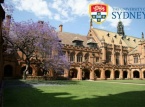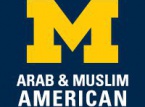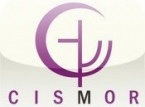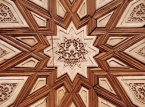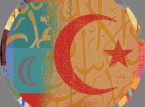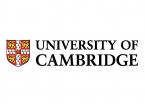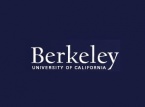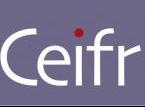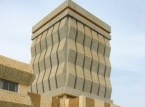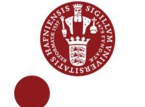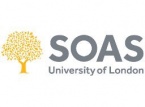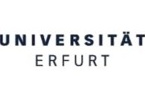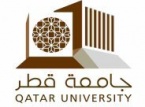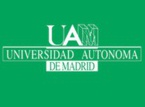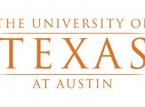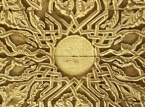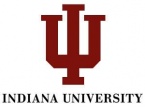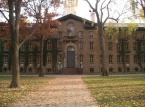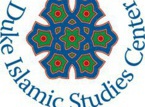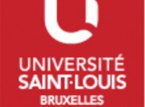Universités & instituts
The Department of Arabic and Islamic Studies at the University of Sydney has an established program which offers a well-integrated curriculum at both undergraduate and postgraduate levels, combining units of study on Arabic language and literature (ARBC) with units on Islam and the societies, cultures and politics of the modern Arab world and the Middle East (ARIS).
Whether you are interested in learning Arabic for basic communication skills, or in order to use it effectively in business, education, law, health, media, translation or community work, we have appropriate Arabic courses for beginners as well as for post-HSC Arabic students. Any student can take units on the Arab world, Islam and the Middle East (tuition in these ARIS units is conducted in English). Combining ARBC and ARIS units will give students a strong foundation of expert knowledge of the language, history, politics, society and culture of the Arab world and Islam, and of the Middle East as an important region in the modern world.
Whether you are interested in learning Arabic for basic communication skills, or in order to use it effectively in business, education, law, health, media, translation or community work, we have appropriate Arabic courses for beginners as well as for post-HSC Arabic students. Any student can take units on the Arab world, Islam and the Middle East (tuition in these ARIS units is conducted in English). Combining ARBC and ARIS units will give students a strong foundation of expert knowledge of the language, history, politics, society and culture of the Arab world and Islam, and of the Middle East as an important region in the modern world.
Our research and teaching highlight Arab and Muslim American cultural expressions, the links between race, class, gender, sexuality, and religion, and the significance of media and art to Arab and Muslim American individuals and communities. Arab and Muslim American Studies at the University of Michigan prioritizes comparative approaches that place the understanding of Arab and Muslim Americans in relation to research and activism related to the wide range of indigenous, racial, ethnic, and immigrant communities in the U.S. It also prioritizes community-based approaches that link universities with local Arab and Muslim American communities from a social-justice-based perspective.
Le projet « espaces transformés et transformants » se subdivise en trois axes : deux axes
disciplinaires, « islam radical en France » et « genre » et un axe pluridisciplinaire « espaces de
l’imaginaire et imaginaires de l’espace ». Les deux premiers sont dans la continuité du
précédent contrat. Le troisième est inédit.
disciplinaires, « islam radical en France » et « genre » et un axe pluridisciplinaire « espaces de
l’imaginaire et imaginaires de l’espace ». Les deux premiers sont dans la continuité du
précédent contrat. Le troisième est inédit.
Le Centre pour l'étude interdisciplinaire des religions monothéistes (CISMOR) de l' Université Doshisha a été créé en 2003, à peu près au même moment l'école de l'université de théologie a été choisie comme centre du 21ème siècle d'excellence (COE), programme du ministère de l'Éducation, de la Culture, Sports, des Sciences et de la Technologie (MEXT). Merci à l'appui et l'aide des nombreuses personnes et organisations à l'intérieur et à l'extérieur du Japon, nous avons été en mesure de mener des recherches interdisciplinaires sur les trois religions monothéistes nées au Moyen-Orient à savoir le judaïsme, le christianisme et l'islam et leurs mondes.
Guided by the principles of academic excellence, forward vision, and community engagement, the Center for International and Regional Studies' (CIRS) mission revolves around five principal goals:
To provide a forum for scholarship and research on international and regional affairs
To encourage in-depth examination and exchange of ideas
To foster thoughtful dialogue among students, scholars and practitioners of international affairs
To facilitate the free flow of ideas and knowledge through publishing the products of its research, sponsoring conferences and seminars, and holding workshops designed to explore the complexities of the twenty-first century
To engage in outreach activities with a wide range of local, regional and international partners.
To provide a forum for scholarship and research on international and regional affairs
To encourage in-depth examination and exchange of ideas
To foster thoughtful dialogue among students, scholars and practitioners of international affairs
To facilitate the free flow of ideas and knowledge through publishing the products of its research, sponsoring conferences and seminars, and holding workshops designed to explore the complexities of the twenty-first century
To engage in outreach activities with a wide range of local, regional and international partners.
University of Oslo/Faculty of Humanities/Department of Culture Studies and Oriental Languages/Center for Islamic and Middle East Studies
The Centre for Islamic and Middle Eastern Studies is an interdisciplinary research centre that aims to promote understanding of key developments within the Middle East and the Islamic world through a range of academic approaches.
The Centre for Islamic and Middle Eastern Studies is an interdisciplinary research centre that aims to promote understanding of key developments within the Middle East and the Islamic world through a range of academic approaches.
With the academic and religious resources to offer a distinctively inter-religious and interdisciplinary approach, the Graduate Theological Union (GTU) founded the Center for Islamic Studies (CIS) in 2007. The center is building an academic platform to help scholars and students of many faiths learn about the richness of Islam and the diversity of Muslims, and emphasizes study and dialogue among contemporary Jewish, Christian, and Muslim communities.
The Centre of Islamic Studies at the University of Cambridge aims to promote a constructive and critical understanding of the role of Islam and Muslims in wider society, with a focus on the UK and Europe. We aspire, through world-class research and dynamic public education, to disseminate knowledge and facilitate informed discussion between academics, policy-makers, the media, the public, business, the third sector and other institutions with an interest in Islam in the contemporary world.
The Centre of Islamic Studies is part of the University of Cambridge and is supported by a generous donation from the Alwaleed Bin Talal Foundations.
The Centre of Islamic Studies is part of the University of Cambridge and is supported by a generous donation from the Alwaleed Bin Talal Foundations.
The CMES is recognized as one of the country's most important sources of information on the Arab states, Iran, Israel, Turkey, and the greater Islamic World.
The CMES promotes the interdisciplinary study of the Middle East on the University of California, Berkeley, campus and beyond, while privileging no single country, topic, or political position. From colloquia and conferences, to grant and research programs, to lecture and film series, we organize a wide variety of academic opportunities and extracurricular activities. Feel free to explore our website and join our mailing list for the latest updates on events and programs.
The CMES promotes the interdisciplinary study of the Middle East on the University of California, Berkeley, campus and beyond, while privileging no single country, topic, or political position. From colloquia and conferences, to grant and research programs, to lecture and film series, we organize a wide variety of academic opportunities and extracurricular activities. Feel free to explore our website and join our mailing list for the latest updates on events and programs.
Créé à l'EHESS en juillet 1993, et constitué en Unité de Recherche au CNRS à partir du ler janvier 1994, le Centre d'Etudes Interdisciplinaires des Faits Religieux réunit sociologues, historiens, anthropologues et philosophes.
A travers le contenu des religions antiques et traditionnelles, le Judaïsme, l’Islam et le Christianisme, le CER entend fournir à l’étudiant venant des autres sections de l’UFR-CRAC et d’ailleurs, le sens de ce qui existe, y compris de nos propres choix et de nos actions en matière de religion. Une place importante est accordée à ce qui est inclus dans les idées de Religion antique, Religion traditionnelle, Judaïsme, Christianisme et Islam. Autres thématiques privilégiées : l’évolution des religions, le dialogue interreligieux, la religion et le monde moderne
The Centre for European Islamic Thought was established in October 2007 as a five-year research project in connection with the appoint of Prof. Jørgen S. Nielsen as a Danish National Research Foundation Professor at the Faculty of Theology.
The focus of the Centre was on Islamic religious thought in contemporary Europe, the processes and circumstances in which it is appearing, seeking to locate and understand it in the context both of the history of Islamic religious thought and of contemporary developments in Islamic thinking, and evaluate it as a response to the European environment specifically and to modernity more generally.
As of June 2013 the Centre is officially closed.
The focus of the Centre was on Islamic religious thought in contemporary Europe, the processes and circumstances in which it is appearing, seeking to locate and understand it in the context both of the history of Islamic religious thought and of contemporary developments in Islamic thinking, and evaluate it as a response to the European environment specifically and to modernity more generally.
As of June 2013 the Centre is officially closed.
Le Centre Merian des Études Avancées au Maghreb (MECAM) est un centre de recherche interdisciplinaire basé à Tunis. Le MECAM promeut l’internationalisation de la recherche et des échanges universitaires dans le domaine des sciences humaines et sociales à travers la Méditerranée. À travers son thème principal “Imagining Futures – Dealing with Disparity” le MECAM vise à examiner la(re)négociation des conditions et des attentes sociales et politiques complexes, des normes et des héritages et ceci, dans le sillage du “Printemps arabe” au Maghreb, au Moyen-Orient, en Europe et au- delà. La toile de fond nécessaire à ces processus est constituée par les disparités et les inégalités qui divisent le Maghreb et les régions voisines – tant au niveau historique que contemporain. Le centre est ouvert à des chercheur·ses qui sont à différents stades de leur carrière. Des boursier·es y travaillent dans le cadre de cinq groupes de bourses interdisciplinaires (IFG) selon les axes de recherche thématiques du MECAM. En outre, le MECAM organise divers événements tels que des séminaires, des conférences, des débats publics et des “académies” itinérantes qui mettent en relation les chercheur·ses et leur permettent de discuter des résultats de leurs recherches. Le MECAM est une initiative conjointe de sept universités et institutions de recherche allemandes et tunisiennes et il est financé par le ministère fédéral allemand de l’éducation et de la recherche (BMBF).
SOAS, Université de Londres, est le seul établissement d'enseignement supérieur en Europe spécialisé dans l'étude de l'Asie, l'Afrique et le Proche et Moyen-Orient.
The Centre of Islamic Studies, SOAS was established in 1995, and aims to promote scholarship and research in all areas of Islamic Studies, past and present. The study of the Qur’an and Hadith from the Arabic texts, and the analysis and translation of Islamic texts from Arabic into English form the core activities of the Centre.
The Centre also deals with Islamic thought in European, African and Asian languages and promotes the study of Islamic culture and relations between Muslims and the wider world.
The Centre of Islamic Studies, SOAS was established in 1995, and aims to promote scholarship and research in all areas of Islamic Studies, past and present. The study of the Qur’an and Hadith from the Arabic texts, and the analysis and translation of Islamic texts from Arabic into English form the core activities of the Centre.
The Centre also deals with Islamic thought in European, African and Asian languages and promotes the study of Islamic culture and relations between Muslims and the wider world.
Le Certificat d’Études sur le monde arabe contemporain (CEMAC) assure une spécialisation dans les domaines liés à cette aire géographique et culturelle sur le plan universitaire par le biais d’une formation complémentaire parallèle à la 1re et la 2e année de Sciences Po Aix. Outre une initiation à l’arabe littéraire moderne en tant que langue de communication, la formation a pour but de spécialiser, par le biais d’enseignements spécifiques, aux différents aspects des sociétés et des systèmes politiques des pays arabes contemporains : histoire du monde arabe moderne et contemporain, sociologie politique du monde arabe contemporain, idéologies religieuses et modes d’actions politiques dans le monde arabe contemporain, géopolitique de la Méditerranée, conflit israélo-palestinien, Islam and Globalization, fondements de l’Islam. Cette formation a également pour objectif de préparer les étudiants qui en sont désireux à se rendre en pays arabe en 3e année pour y parfaire leur formation, notamment linguistique.
Within the realm of the humanities, Islamic Studies at the University of Erfurt is an interdisciplinary oriented subject that particularly addresses the social history of Muslim cultures by means of multifaceted research. It thus exceeds the traditionally dominant historical-comparative and philological approaches of related disciplines and institutes in Germany. Our two foci, Muslim cultures in Europe and in South Asia, complete this unique profile. The numerous fascinating research and dissertation projects of our staff members, Ph.D. candidates, and co-operation partners are further evidence of that
Mission
To provide instruction and opportunities to learn Arabic for non-native speakers from diverse linguistic, religious and national backgrounds at Qatar University.
History, evolution and objectives:
The program was founded as an academic unit within the Arabic Language Department by University regulation 7, enacted by the University President in 1986. The program has since served over 600 students representing more than 50 nationalities. Beginning in the Academic Year 2006-07, the program has operated as its own Department, independent of the Arabic Language Department, and has developed its own mission, vision, and objectives as follows:
To contribute to the continuing dialogue between nations and world cultures and foster tolerance and open interaction among them.
To promote the Arabic language and to provide students with opportunities to learn about the role of Arabic in human history and the development of modern society.
To provide instruction and opportunities to learn Arabic for non-native speakers from diverse linguistic, religious and national backgrounds at Qatar University.
History, evolution and objectives:
The program was founded as an academic unit within the Arabic Language Department by University regulation 7, enacted by the University President in 1986. The program has since served over 600 students representing more than 50 nationalities. Beginning in the Academic Year 2006-07, the program has operated as its own Department, independent of the Arabic Language Department, and has developed its own mission, vision, and objectives as follows:
To contribute to the continuing dialogue between nations and world cultures and foster tolerance and open interaction among them.
To promote the Arabic language and to provide students with opportunities to learn about the role of Arabic in human history and the development of modern society.
The College of Islamic Studies (CIS) provides a unique platform that contributes to critical intellectual debates on Islam in a global context, through its blended academic programs and an immersive learning experience; as well as its distinguished research division, which includes several research centers and clusters.
El Departamento de Estudios Árabes e Islámicos y Estudios Orientales está formado por un grupo de quince docentes, seis becarios de investigación y una secretaria. Se encuentra en la planta baja del módulo II de la Facultad de Filosofía y Letras. Está encargado del Itinerario de Mundo Árabe e Islámico del Grado en Estudios de Asia y África (Árabe, Chino y Japonés) y del Máster en Estudios Árabes e Islámicos Contemporáneos. También es responsable de los planes de estudios de la Licenciatura en Filología Árabe, actualmente en extinción, habiendo sido este curso (2011-2012) su último año de docencia. Se ocupa igualmente de aquellas materias de su área de conocimiento que se imparte en otras titulaciones de nuestra Facultad, tanto de Grado como de Posgrado. Es el caso del Grado en Traducción e Interpretación.
En nuestra página, ofrecemos información sobre nuestros planes de estudios, nuestras líneas de investigación, los congresos que organizamos o en los que participamos, nuestra implicación en proyectos y grupos de investigación y cualquier tipo de actividad que difunda nuestras investigaciones y actividades docentes en general. El departamento cuenta también con un grupo de teatro árabe, ARABUAM, activo desde 2002.
Las líneas principales de investigación de nuestro departamento son: Lengua y Literatura árabes, Árabe marroquí, Historia del islam, Traducción, Islam en España y Europa, Migraciones magrebíes a España, Regímenes políticos árabes, Estudios iraníes y Estudios turcos. Como instrumento para la difusión de sus trabajos, se edita la Revista de Estudios Internacionales Mediterráneos, que está vinculada al proyecto de investigación España ante migraciones y reformas políticas en el Mediterráneo y el mundo musulmán.
En nuestra página, ofrecemos información sobre nuestros planes de estudios, nuestras líneas de investigación, los congresos que organizamos o en los que participamos, nuestra implicación en proyectos y grupos de investigación y cualquier tipo de actividad que difunda nuestras investigaciones y actividades docentes en general. El departamento cuenta también con un grupo de teatro árabe, ARABUAM, activo desde 2002.
Las líneas principales de investigación de nuestro departamento son: Lengua y Literatura árabes, Árabe marroquí, Historia del islam, Traducción, Islam en España y Europa, Migraciones magrebíes a España, Regímenes políticos árabes, Estudios iraníes y Estudios turcos. Como instrumento para la difusión de sus trabajos, se edita la Revista de Estudios Internacionales Mediterráneos, que está vinculada al proyecto de investigación España ante migraciones y reformas políticas en el Mediterráneo y el mundo musulmán.
While housed in the Department of Middle Eastern Studies, Islamic Studies is envisioned as a multi-disciplinary and multi-regional field of study. Therefore, the program allows students the flexibility to choose from a broad selection of courses related to Islam and Muslim societies offered in a variety of other departments as well, such as African and African-American Studies, Asian Studies, History, Sociology, Anthropology and Art History, taught in rotation by approximately twenty faculty across the University.
The Department of Classical and Near Eastern Languages and Civilizations is devoted to providing students with a unique learning experience. Offering Greek, Latin, Hebrew, Arabic, Persian, and Turkish, as well as courses in ancient history and civilizations and the modern Middle East, our department prides itself on a unique configuration and blend of professors focused on both research and teaching. We are the only department in the United States that has two professors who have won the national "Excellence in Undergraduate Teaching Award" from the Archaeological Institute of America (Cline in 2005 and Friedland in 2012). We are also one of the few, if not the only, department in the United States to offer both a major in Classical Studies and a major in Arabic Studies.
Our distinguished and world-renowned faculty teach diverse courses on the languages, literatures, religions, history, and cultures of the Arab world and the Middle East. Many of our undergraduate majors go on to pursue graduate degrees in Middle Eastern studies and related fields or obtain professional degrees in law and business, among other areas of specialization. Graduates of the masters and doctoral programs enter careers in academia, foreign service, public and business administration.
The signature strengths of the department remain in the classical and medieval periods of Islam—in classical Arabic literature and language, Islamic studies, philosophical and religious thought, and intellectual history. The thriving Arabic language program with its focus on modern standard Arabic and courses offered in the department on the history and politics of the modern Middle East add a vital and critical modern dimension to the traditional departmental areas of strength.
The signature strengths of the department remain in the classical and medieval periods of Islam—in classical Arabic literature and language, Islamic studies, philosophical and religious thought, and intellectual history. The thriving Arabic language program with its focus on modern standard Arabic and courses offered in the department on the history and politics of the modern Middle East add a vital and critical modern dimension to the traditional departmental areas of strength.
The Department of Near Eastern Studies has been a leader in the study of the Middle East since 1927 when it was founded as the Department of Oriental Languages and Literatures. While traditionally the strength of the department has been in the medieval and pre-modern studies of the geographical area that includes the Arab lands, Iran, Israel, and Turkey, greater emphasis has been given more recently to the modern Muslim world in its entirety, including the Caucasus, Central Asia, South Asia, and Southeast Asia. This development recognizes the many interconnections of the Muslim ecumene and enables NES to offer its students an interdisciplinary program of studies that breaks out of the artificial constraints imposed by the traditional geographical focus.
The Duke Islamic Studies Center is a vibrant, diverse community of scholars and students engaged in interdisciplinary teaching, interactive learning, and cutting-edge research about Islam and Muslims. We are educating today’s students to become tomorrow’s leaders by equipping them with knowledge about the breadth and diversity of Islamic cultures, cross-cultural experiences, and language skills.
DISC is one of the leading institutions in North America for the study of Islam and Muslims. Its comparative, cross-cultural approach to Islamic studies will foster fresh interpretations of Islam and encourage creative solutions to the economic, political and social challenges involving Muslims. We are committed to working with partners at home and abroad to provide undergraduate and graduate students, professionals and policy makers with the knowledge about Muslims and Islamic cultures, beliefs and practices that will enable them to operate effectively in a multicultural world.
DISC is one of the leading institutions in North America for the study of Islam and Muslims. Its comparative, cross-cultural approach to Islamic studies will foster fresh interpretations of Islam and encourage creative solutions to the economic, political and social challenges involving Muslims. We are committed to working with partners at home and abroad to provide undergraduate and graduate students, professionals and policy makers with the knowledge about Muslims and Islamic cultures, beliefs and practices that will enable them to operate effectively in a multicultural world.
L'Ecole des sciences philosophiques et religieuses
L’Ecole des sciences philosophiques et religieuses développe des activités d’enseignement et de recherche. Elle est soucieuse de croiser les domaines de la philosophie, de la théologie, des sciences religieuses, des sciences humaines et de proposer des activités destinées aux étudiants et à un public extérieur.
Fondée en 1925 comme institution annexe de l'Université Saint-Louis - Bruxelles, l'Ecole n'a de cesse de faire évoluer ses programmes. Elle propose actuellement des chaires de philosophie et des chaires d'histoire des religions. Chaque année, des spécialistes de renom international sont invités à venir y présenter leurs recherches en cours.
L’Ecole des sciences philosophiques et religieuses développe des activités d’enseignement et de recherche. Elle est soucieuse de croiser les domaines de la philosophie, de la théologie, des sciences religieuses, des sciences humaines et de proposer des activités destinées aux étudiants et à un public extérieur.
Fondée en 1925 comme institution annexe de l'Université Saint-Louis - Bruxelles, l'Ecole n'a de cesse de faire évoluer ses programmes. Elle propose actuellement des chaires de philosophie et des chaires d'histoire des religions. Chaque année, des spécialistes de renom international sont invités à venir y présenter leurs recherches en cours.
|
Les Cahiers de l'Islam © 2012-2023. Tous droits réservés.
ISSN 2269-1995 Contact : redaction (at) lescahiersdelislam.fr |


